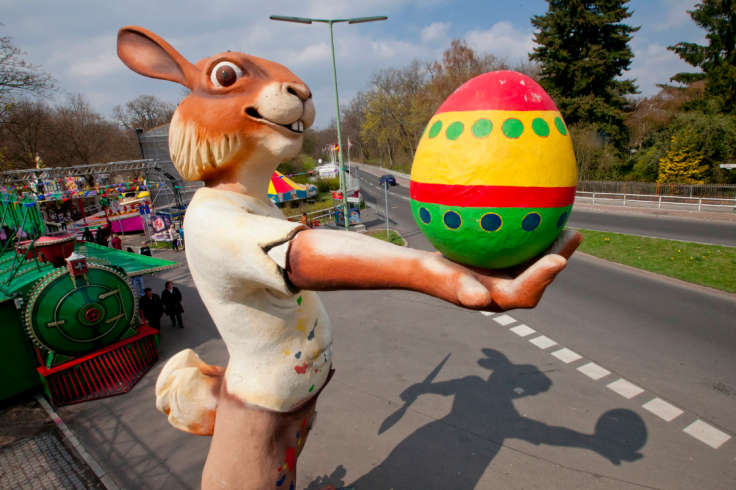Is Easter A Pagan Holiday? Why Bunnies And Eggs Are Part Of The Spring Celebration

For some, the Easter bunny and colored eggs are just as popular on Easter as celebrating Jesus Christ’s resurrection. What a rabbit hiding pastel boiled eggs has to do with the central Christian holiday is a puzzler, but it does make a little more sense if paganism is brought into the discussion.
Some believe that early Christians took over pagan symbols to encourage conversion. Easter is arguably one of the best examples of this because the name may have come from the pagan festival of Eostre, the Guardian wrote in 2010.
Eostre is apparently where the idea of bunnies got involved in Easter. Eostre is the name of a Northern European fertility goddess whose symbol was a rabbit. The Guardian said essentially that all the fun things associated with Easter are pagan. For instance, the exchange of eggs is an ancient tradition that is observed by many cultures.
The story of Christ being resurrected also coincides with a pagan belief. There’s a general belief during the spring equinox that the death of the son of God (or the sun in the sky) on a cross (or the constellation of the Southern Cross) and then it is followed by his rebirth (or the overcoming of darkness).
According to The Guardian, the Sumerian goddess Inanna, or Ishtar, was hung naked on a stake like the biblical story of Jesus Christ, and then she consequently revived and rose from the underworld.
Another pagan influence is that the date of the date of Easter is not fixed. Instead, it depends on the phases of the moon. Easter is celebrated on the first Sunday after the full moon following the vernal equinox.
Bible Gateway Blog doesn’t deny that paganism could have influenced the way Christians celebrate the resurrection of Jesus Christ. Mel Lawrenz, minister-at-large of Elmbrook Church in Brookfield, Wis., said there has never been a “direct association” with the fertility goddess and the rebirth of Jesus Christ.
He said even if the name “Easter” derived from a pagan origin, it doesn’t mean Cathloics are celebrating anything but the resurrection. “In normal speech today, people make no association with ancient pagan religion,” he said.
Lawrenz added that Christians purposely infused their religion with pagan customs as a way to say, “the Son of God trumps the sun god.”
Follow me on Twitter @mariamzzarella
© Copyright IBTimes 2025. All rights reserved.






















